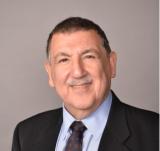Live Grand Rounds: Creative Resilience & Aging: Frank Sinatra’s Aging in Rhythm

Frank Sinatra (1915-1998) was among the most admired and influential performing artists of the 20th century, with an approach to rhythm and phrasing that left a deep and lasting impression on all popular singers to follow. At the same time, his public persona and private life were among the most controversial of public figures. This presentation will use images, audio, and video clips to illustrate Mr. Sinatra’s professional journey across six decades, including examination of his lifelong alcohol use and periods of despondency and suicidality. We will pay special attention to how he dealt with his own aging process, including how he continued to tour in concert well into the progressive dementia that would eventually end his career. His story holds rich implications for considering the creative resilience potential in aging, and for the limitations to such resilience posed by illness and functional impairment.
Category
- Geriatrics/Older Adults
- Grand Rounds
- Well-Being
Format
- Live Webinar
Credits
- 1.50 ACEP NBCC clock hours
- 1.50 AMA PRA Category 1 Credit™
- 1.50 Category I credits for Social Workers
- 1.50 Psychologists
- 1.50 MNA Contact Hours for Nurses
- 1.50 Participation
Event date April 30, 2024
Live Grand Rounds: Ethical Issues in Treating LGBTQ Patients

The American Psychiatric Association’s Principles of Medical Ethics emphasize competence, respect and up-to-date knowledge as a basis for appropriate professional behavior toward lesbian, gay, bisexual, transgender and queer (LGBTQ) patients. After providing some definitions of helpful terms, this presentation then reviews historical psychiatric attitudes towards LGBTQ patients that could be construed, at best, as patronizing and, at worst, overtly hostile. In modern clinical practice, as opposed to trying to “cure” homosexuality or “transsexualism,” LGBTQ patients are helped to live their lives according to their own natures and desires. This presentation outlines some common clinical questions raised by LGBTQ patients—what is known and not known about the origins of homosexuality and transgender expression, sexual orientation conversion efforts (SOCE), therapist self-disclosure, how therapists should address LGBTQ patients, and controversies surrounding treatment of transgender children—as well as ethical issues raised in these clinical encounters.
Category
- Ethics/Legal
- Grand Rounds
- LGBTQIA+
Format
- Live Webinar
Credits
- 1.00 ACEP NBCC clock hours
- 1.00 AMA PRA Category 1 Credit™
- 1.00 Category I credits for Social Workers
- 1.00 Psychologists
- 1.00 MNA Contact Hours for Nurses
- 1.00 Participation
Event date May 22, 2024
Live Meyerhoff Lecture: Interventional Neuropsychiatry

Depression is one of the leading causes of disability worldwide. Although treatments are available, a large proportion of patients fail to respond to first line treatments, such as oral antidepressants and psychotherapy, even after multiple treatment attempts. They are then considered to have treatment resistant depression (TRD), a condition which puts them at heightened risk of suicide. Several neuromodulation approaches have been developed which may be effective for TRD. Neuromodulation approaches are those which involve directly affecting the brain through the introduction of electrical, magnetic, or sonic energy. These include electroconvulsive therapy, deep brain stimulation, transcranial direct current stimulation, vagal nerve stimulation, transcranial magnetic stimulation (TMS), and low intensity focused ultrasound, to name just a few. In this talk we will have a special focus on accelerated theta burst forms of TMS, which have recently demonstrated high rates of response and remission in TRD, following just a few days of treatment.
Category
- Grand Rounds
- Meyerhoff Lecture
- Neuropsychiatry
Format
- Live Webinar
Credits
- 1.00 ACEP NBCC clock hours
- 1.00 AMA PRA Category 1 Credit™
- 1.00 Category I credits for Social Workers
- 1.00 Psychologists
- 1.00 MNA Contact Hours for Nurses
- 1.00 Participation
Event date May 30, 2024

 Facebook
Facebook Twitter
Twitter LinkedIn
LinkedIn Forward
Forward